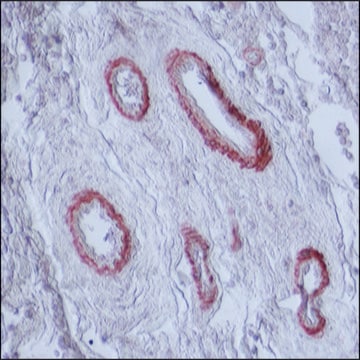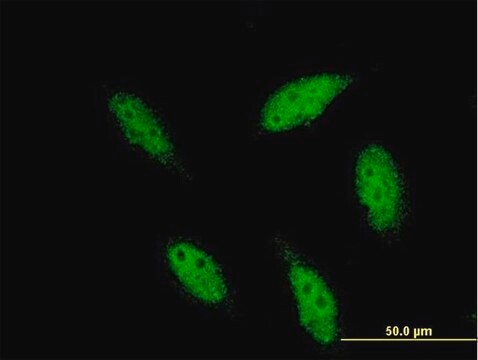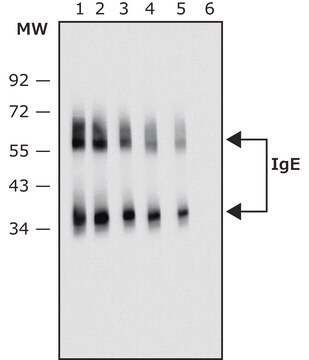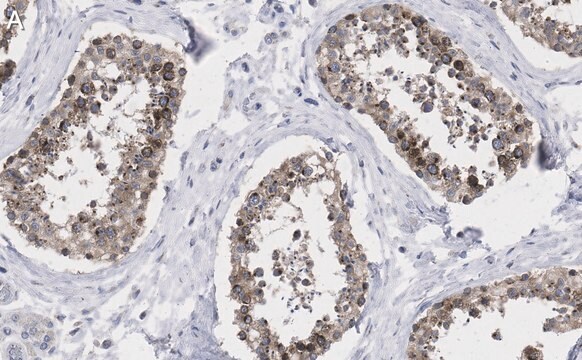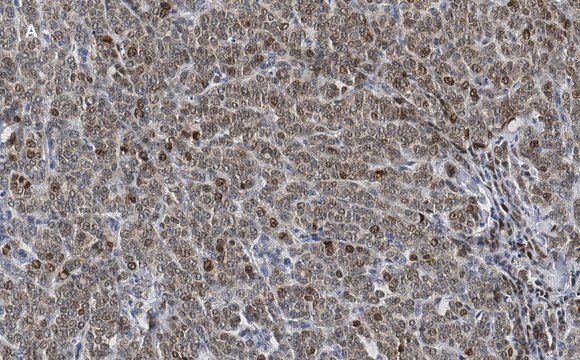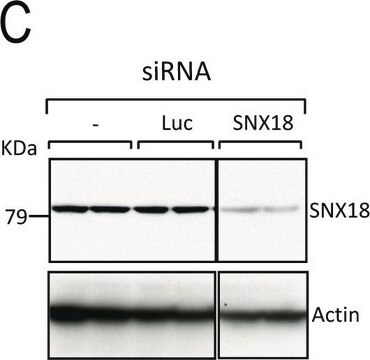07-408
Anti-Smad2/3 Antibody
Upstate®, from rabbit
Synonyme(s) :
MAD, mothers against decapentaplegic homolog 2 (Drosophila), Mad protein homolog, Mad, mothers against decapentaplegic homolog 2, Mad-related protein 2, Mothers against DPP homolog 2, SMAD 2, SMAD family member 2, SMAD, mothers against DPP homolog 2, SMA
About This Item
Produits recommandés
Source biologique
rabbit
Niveau de qualité
Forme d'anticorps
affinity isolated antibody
Type de produit anticorps
primary antibodies
Clone
polyclonal
Produit purifié par
affinity chromatography
Espèces réactives
human, mouse, rat
Conditionnement
antibody small pack of 25 μL
Fabricant/nom de marque
Upstate®
Technique(s)
western blot: suitable
Isotype
IgG
Numéro d'accès NCBI
Numéro d'accès UniProt
Conditions d'expédition
ambient
Modification post-traductionnelle de la cible
unmodified
Informations sur le gène
human ... SMAD2(4087)
Description générale
Spécificité
Immunogène
Application
Optimal working dilutiuons must be determined by end user.
Epigenetics & Nuclear Function
Transcription Factors
Qualité
Western Blot Analysis:
1:500 dilution of this lot detected SMAD2/3 on 10 μg of Hela lysates.
Description de la cible
Liaison
Forme physique
Stockage et stabilité
Handling Recommendations: Upon first thaw, and prior to removing the cap, centrifuge the vial and gently mix the solution. Aliquot into microcentrifuge tubes and store at -20°C. Avoid repeated freeze/thaw cycles, which may damage IgG and affect product performance. Note: Variabillity in freezer temperatures below -20°C may cause glycerol containing solutions to become frozen during storage.
Remarque sur l'analyse
HepG2 cell lysate.
Autres remarques
Informations légales
Clause de non-responsabilité
Vous ne trouvez pas le bon produit ?
Essayez notre Outil de sélection de produits.
En option
Certificats d'analyse (COA)
Recherchez un Certificats d'analyse (COA) en saisissant le numéro de lot du produit. Les numéros de lot figurent sur l'étiquette du produit après les mots "Lot" ou "Batch".
Déjà en possession de ce produit ?
Retrouvez la documentation relative aux produits que vous avez récemment achetés dans la Bibliothèque de documents.
Notre équipe de scientifiques dispose d'une expérience dans tous les secteurs de la recherche, notamment en sciences de la vie, science des matériaux, synthèse chimique, chromatographie, analyse et dans de nombreux autres domaines..
Contacter notre Service technique

